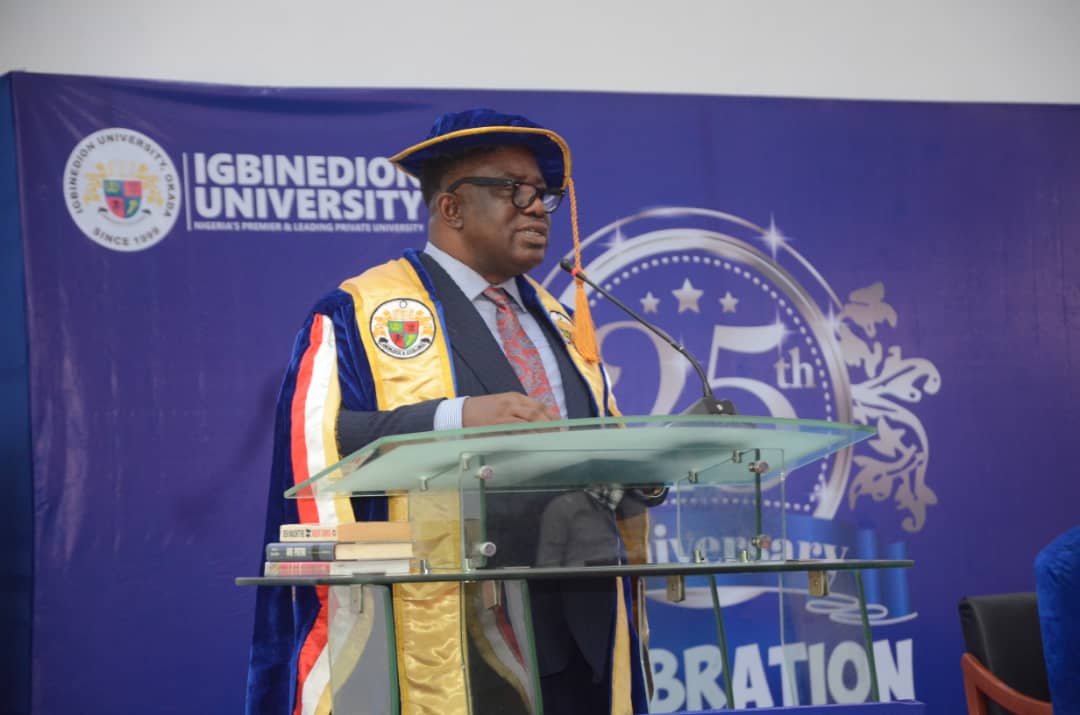

Varsity Don Proffers Panacea to Nigeria’s Lingering Security Woes
In the face of Nigeria’s ongoing security and economic challenges, a university professor has advocated for the liberalisation of security knowledge and management as a strategic solution to the country’s safety crisis.
Prof. Olufemi Olufunmilade, a Professor of International Relations and Strategic Studies at Igbinedion University Okada, Edo State, made this proposition while delivering the 25th Inaugural Lecture of the institution, titled “Foreign Intelligence: The Means to Advancing Nigeria’s Security and Prosperity.” At the university’s main auditorium in Okada on June 14, 2024.
According to Olufunmilade, Nigeria is currently experiencing its worst security and economic predicament since independence, save for the civil war era. He lamented that the nation is in a precarious state where security has become too important to be left solely in the hands of security practitioners, necessitating the active involvement of every Nigerian in the task of securing their respective communities.
“What Nigeria needs now and urgently too is to make its territory safe for lives and property and build a prosperous economy that will enhance the well-being of all and sundry within its borders,” Olufunmilade said.
The erudite professor emphasised the need for the liberalisation of security knowledge and management, arguing that the current practice of hoarding and treating such information as the exclusive preserve of security experts is counterproductive. He asserted that making security knowledge, practice, and application more accessible to the general public would be the quickest path for the nation to extricate itself from the present security quagmire.
Underscoring the importance of intelligence in the overall security architecture of any nation, Olufunmilade stated that “intelligence is that aspect of security management that is a sine qua non, and any security arrangement not backed up with intelligence is hollow at best.”
To this end, the Professor of International Relations and Strategic Studies suggested the deployment of foreign intelligence in Nigeria’s security framework, which he said is crucial for acquiring the necessary skills and technology needed for self-reliant security systems and enduring economic prosperity.
Olufunmilade called on the Nigerian government and other stakeholders to take concrete steps to make foreign intelligence a functional tool for advancing national security and economic progress. This, he said, should include ensuring that defence attaches are drawn from the intelligence corps of the military and that economic and commercial attaches with the requisite skills are posted to foreign missions to attract investment, technology, and expertise to the Nigerian economy.
Commenting on the importance of the Inaugural Lecture, the Vice-Chancellor of Igbinedion University Okada, Prof. Lawrence Ezemonye, Ph.D., FAS, described it as an avenue for professors to share their discoveries, ideas, and insights with the public and the larger academic community. He noted that the guest lecturer, Prof. Olufunmilade, had contributed extensively to research and teaching within the Nigerian military, with publications in the Nigerian Army journal and the journal of the Nigerian Army War College on themes such as nuclear weapons, biological warfare, and foreign intelligence.
The Vice-Chancellor’s remarks underscored the significance of the Inaugural Lecture as a platform for academic luminaries to showcase their research findings and provide solutions to pressing societal challenges, in this case, Nigeria’s lingering security crisis.